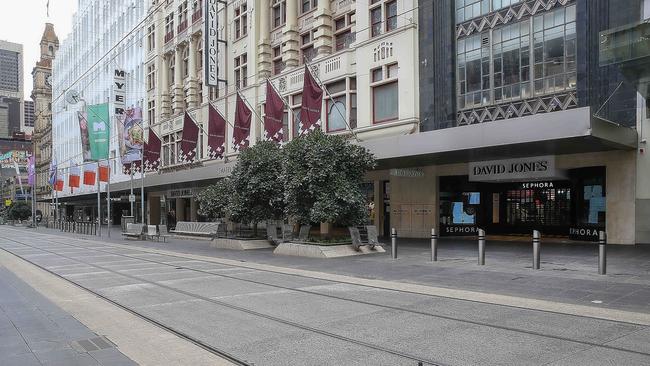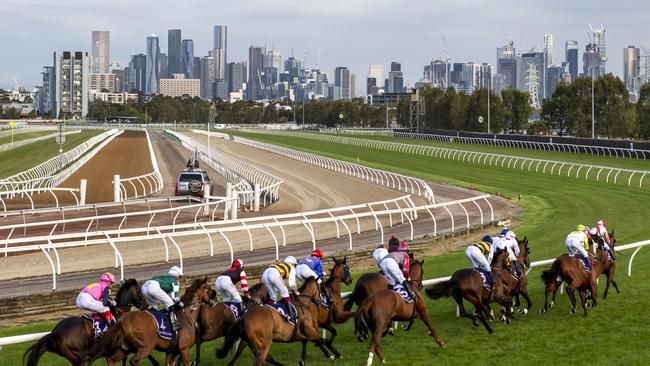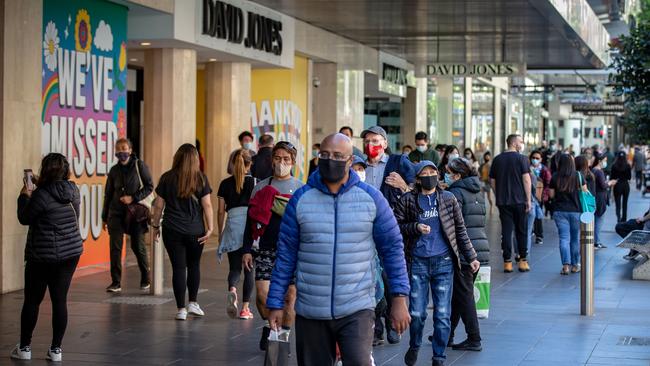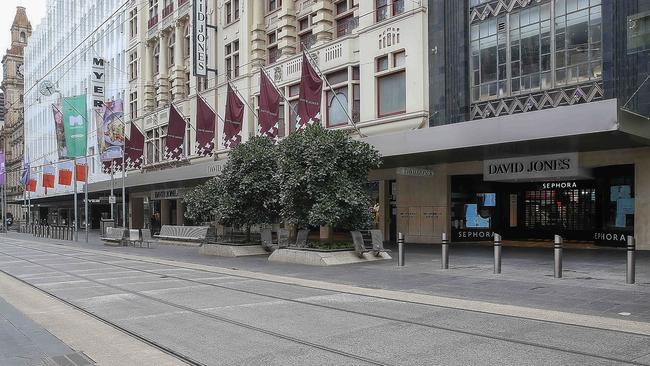Patrick Carlyon: How Melbourne Cup fans had hopes dashed by envy
If Melbourne’s lockdown fostered resilience and kindness, it also spawned envy — and that mindset means despite few health risks to a small crowd, no one will go to the Melbourne Cup on Tuesday, writes Patrick Carlyon.

Patrick Carlyon
Don't miss out on the headlines from Patrick Carlyon. Followed categories will be added to My News.
What a shame. The Melbourne Cup will be run next week without people. There are few health risks for a small crowd.
But the state government said no.
As Premier Daniel Andrews has said, the virus transmission rate outside is 20 times less than inside. Flemington is 125ha of mostly outside. The size of a small
suburb.
The Victoria Racing Club asked for a 10,000 crowd limit. Take out indoor areas, and apply the desire to be near the winning post. Each patron would boast many times more area than the required (and often ignored) distancing demanded of a supermarket
check-out queue.
The VRC then reduced the request to 1000 racing-connected guests. Roughly, this idea offered each racegoer a suburban block’s worth of space to bet, booze and gawk in isolation.

Flemington could have staggered arrival times, adhered to protocols for getting a drink or party pie, enforce fans from going near a horse or a jockey, and ensure that patrons stayed the hell away from one another.
“The government has determined that next week is not a suitable time for gatherings of that nature,” Racing Minister Martin Pakula said this week. “It is the right decision and has been made in the interests of all Victorians.”
In other words, just cos.
Yet we know there are no
health risks because the state government approved a small crowd for the Cox Plate at
Moonee Valley two weeks ago.
Health officials drew up protocols. The decision passed cabinet. Then the state government changed its mind.
The backflip followed a public reaction which echoed the “haves” and “have-nots” thinking to insinuate Melbourne in 2020.
Throughout the year, ordinary people railed against plans to open golf and fishing, even though there were few health risks posed by golf or fishing. They were driven not
by greater concern, but because they themselves could not do what they wanted.

The Cox Plate decision prompted a rare apology from the state government. Pakula said he was not mindful enough of perceptions.
The admission didn’t mean much, not alongside the catastrophic bumbling, and lack of accountability, for the decisions that directly led to Victoria’s second wave and hundreds
of deaths.
But it did sate kneejerk anger. Why should racehorse owners get treated to the hoity toity of the races when Melburnians could not host loved ones for the grand final?
More than 37,000 attended the NRL final last Sunday in Sydney, which battles similar case numbers as Melbourne.
Perhaps the Cup crowd idea might have been an easier sell if a ballot for ordinary people was held. Say, 500 fans randomly plucked from a box, in bowing to the egalitarian notions of the race’s past. A token gesture, perhaps, but also a way to dispel mean-spirited thinking in a year of lockdown inconsistencies.
This week heralded the reawakening of a city. Sunny skies amplified the sense of liberation.
Major department stores resembled food drops in a war-torn land, as do the Boxing Day sales, when the footage is beamed worldwide as an outbreak in greed.
Pubs and restaurants remain stalled. The something-is-better-than-nothing thinking will dim as takings remain financially untenable, even after restrictions are slightly reduced next month.
Lighter measures, as welcome as they are, only highlight the arbitrariness of restrictions. If shopping customers can go crazy, why can’t drinkers, diners or punters? Why can’t Melburnians, trapped by the tyranny of distance restrictions, have an overdue walk at the beach?

The divisions highlight one of the great failings of the state government response. Many decisions were not driven by health imperatives. Drastic restrictions and their overreach were at odds with the growing science.
Lockdown was demoralising in ways it need not have been. There was no health reason for a curfew. There was no health reason for 5km limits.
These measures smoothed enforcement, in a priority borrowed from a dictator’s handbook. They also smudged the failings of Victoria’s contact tracing, which remained scandalously inept for so long.
What’s ahead, and how it is handled, is now the focus. Public health should be the abiding driver, not favours for preferred industries, or fevered perceptions of haves and have-nots.
If lockdown fostered resilience and kindness, it also spawned envy. An unpleasant argument festered: if we must suffer, others should suffer, too.
It’s that mindset which means no one will go to the Melbourne Cup on Tuesday.
If fresh outbreaks emerge, it’s the sort of thinking that could still cancel Christmas for everyone.
Patrick Carlyon is a Herald Sun columnist

